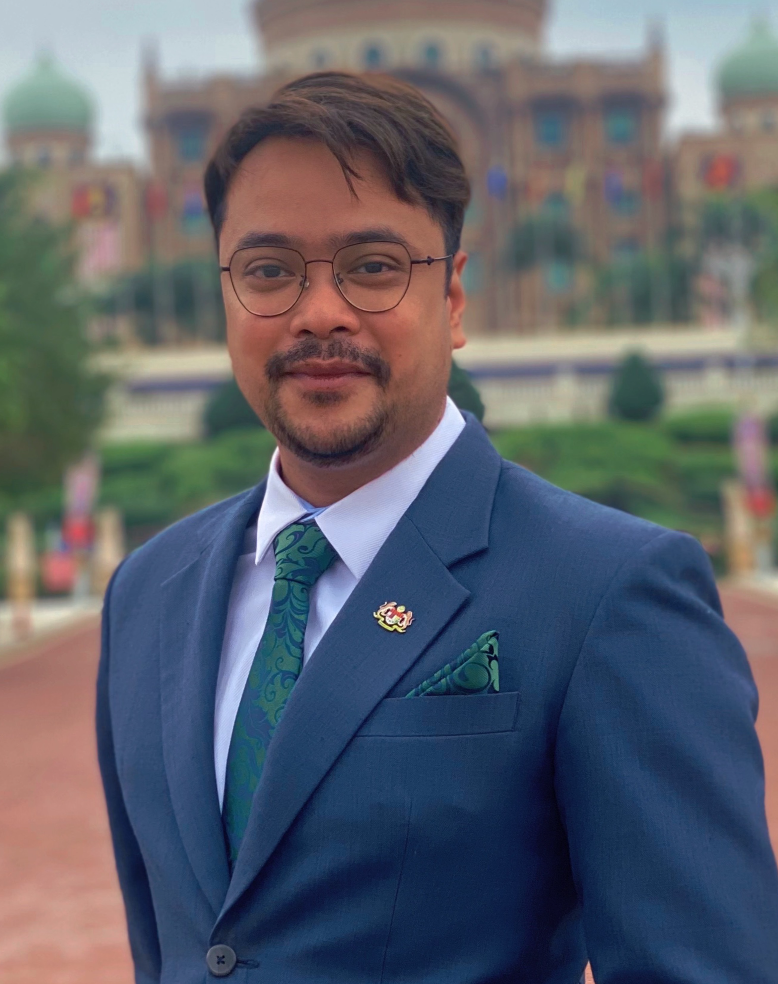Nik Hussein is serving in the Malaysian Administrative and Diplomatic Service (PTD) and currently as the Special Officer in the Prime Minister's Department, Malaysia.
 Nik Mohamed Hussein Nik Ali, MPP
Nik Mohamed Hussein Nik Ali, MPP
I used to be an activist, and was involved in discussions on nation-building run by NGOs and activists who were enthusiastic to build a better Malaysia. Some of the friends I made here are now in mainstream politics, some stayed as activists, while I joined the civil service, but we remained a tribe with a similar mission – to build a nation.
I believe that nations do have choices: our fate is not set in stone. Malaysia has faced a multitude of challenges since independence in 1957, and perhaps had little right to expect to grow so dramatically, eradicate poverty so clinically, and by and large maintain peace and harmony so calmly. Malaysians are currently facing changing twin forces of change: firstly, the powerful global force for economic and political change, and secondly, an evident and emerging disenfranchisement among the middle and lower economic classes.To prepare for the future, political leaders will need to make critical choices. But political leaders come and go. The civil servants are the ones who stay to help the government run the country, support the government's policies and play an important role in providing advice and support to ministers and other government officials.
However, the civil service has always been, and will always be, an enigma. People are sceptical on its ability to provide government ministers with impartial advice. Public service delivery is expected to be near perfect while showing the maximum respect for the people. The enigma has haunted the civil service around the globe.
These are the thoughts I brought to LSE in 2021: the year I took a sabbatical and came to London via a scholarship from my government. I took a break from my career to fill my knowledge gap on public policy. In my civil service career before LSE I was placed in different ministries and departments to see every possible angle of public policy, from trade negotiation perspective in the World Trade Organization (WTO) to policy direction in the Prime Minister’s Office.
But it was all blurry. Studying MPP for nine months at LSE gave me a clearer picture on how the civil service should be. I learned that public sector modernisation is no longer an option, but a necessity to help governments respond to changing societal needs and maintain competitiveness. As a bureaucrat I was given a new approach and methods, better understanding how the world really works. I am currently using these information and methods in my current role as Special Officer at the Prime Minister’s Department, Malaysia.
My experience as an MPP student was incredible. I clearly remember the first time I met my cohort, a class full of brilliant minds with a wide range of opinions. Some had gained experience in multinational corporations, international organisations, and mainstream policies; I clicked with some who who had similar background with me as civil servants. My cohort had so much diversity, but the nine months’ ride with them was amazing. Throughout the whole programme, there was excellent access to the lecturers frequently enhanced by post-class discussion sessions. I love the mind stimulation sessions where my class members shared their perspectives on the world during our evening sessions: covering anything from the political movements in Southeast Asia to the poverty problems faced by India.
In nine months I had found my new tribe, build by books inside and outside the classroom. I met like-minded individuals whose goals are to progressively build their nation. The MPP found the disconnected and connected them, to find people eager to pursue a goal and give them structure to achieve that goal. Just about always, we start with an already existing worldview, a hunger that’s waiting to be satisfied.
My MPP experiences taught me that the goal is to find a community of people that desire to be in sync and who have a bias in favour of the action required to create a more beautiful, sustainable future. I have leveraged the MPP network by applying the same concept – the word “contacts” replaced with the word “relationships”. Relationships that are genuine, deep, and will undoubtedly continue to grow as years pass and joyous life milestones are met.
When someone marvels at my “LSE Network”, I will smile and nod. I will know in my heart that I did not amass a bunch of email addresses and WhatsApp groups; I gained an irreplaceable support network. I gained a tribe. Once more we went our separate ways, but we stayed as a tribe with a similar mission – to build a nation. Thank you LSE.
Nik Hussein is happy to connect on LinkedIn.